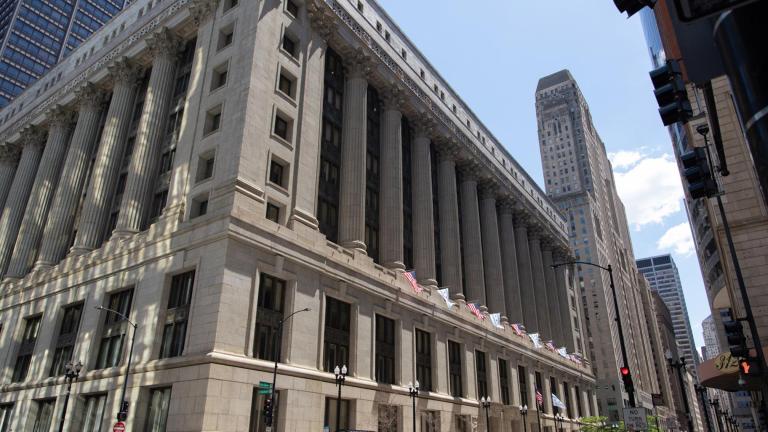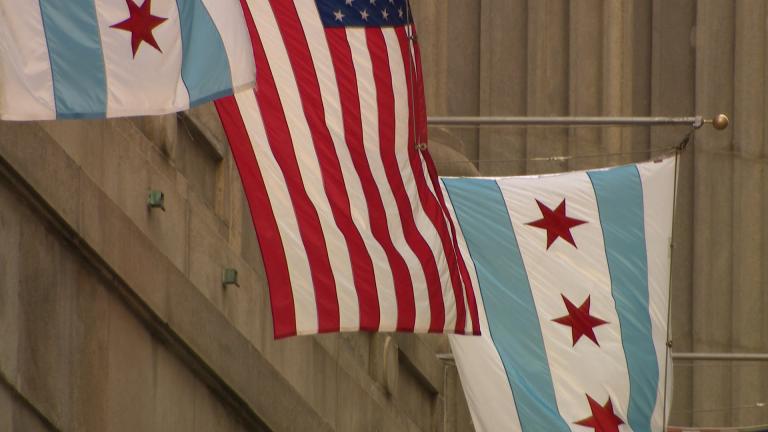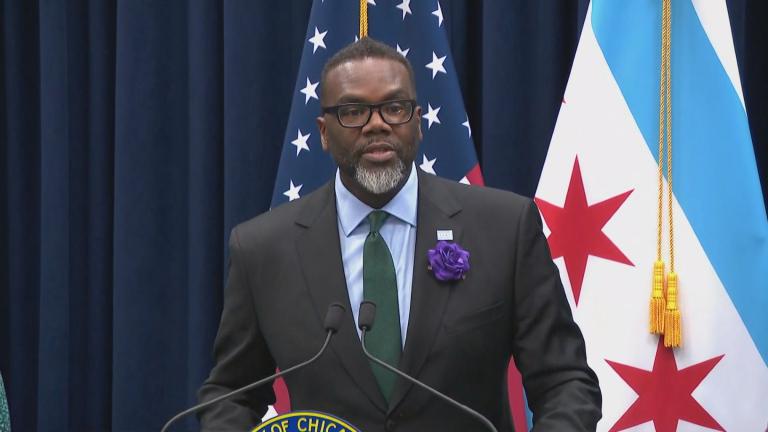The Chicago City Council voted 42-7 Wednesday to crack down on dollar stores across Chicago, agreeing that the increasing number of stores has created a nuisance in many West and South Side neighborhoods.
The decisive vote on the proposal crafted by Ald. Matt O’Shea (19th Ward) was delayed nearly a month after lobbyists for Dollar Tree, Inc., who operate Dollar Tree and Family Dollar stores, attempted to kill the measure. There are 149 dollar stores in Chicago, O'Shea said.
“When I pass any one of those 149 stores today, you’re likely to see overflowing dumpsters, broken fences, broken exterior lights, buildings in disrepair, shopping carts overturned on sidewalks or in the parking lot,” O’Shea said. “Yet, it is funny, when I drive just five or 10 minutes outside my community, in a predominately White suburb, I don’t see that. I see clean, well-maintained stores and parking lots. Why does this Fortune 200 firm think it is OK to maintain stores in suburban White communities and yet ignore stores in your communities?”
O’Shea has been fighting the proliferation of so-called “small-box stores” since 2015, when the stores began popping up in his Far Southwest Side ward. O’Shea said his repeated demands that the firms act fell on deaf ears — until he proposed the crackdown five months ago, only to face a concerted effort to thwart the new regulations.
“I don’t like getting bulls---, I don’t like getting my chain yanked,” O’Shea said, apologizing for violating the rules prohibiting profanity during meetings of the City Council.
The new regulations ban new dollar stores — defined as stores offering an assortment of goods, most advertised at less than $5 — from opening within one mile of another dollar store owned by the same company.
In addition, the new rules require stores to post a placard with contact information for the store’s operators so nearby residents can register complaints with the store.
A joint statement from the Chicagoland Chamber of Commerce, the Illinois Retail Merchants Association and the Illinois Hispanic Chamber of Commerce called the measure “misguided.”
“This sets a dangerous precedent for future job growth in Chicago,” the statement said. “This was all avoidable and will severely limit opportunities for new economic development in communities where those investments are needed most.”
City officials have fined dollar stores more than $600,000 for more than 3,300 infractions, including for selling expired baby formula, O’Shea said, citing an investigation by Block Club Chicago.
Ald. Derrick Curtis (18th Ward) said he regrets that several dollar stores moved into his ward in recent years — and is furious that the dollar stores in nearby suburbs do not create magnets for crime and trash.
Ald. Jeanette Taylor (20th Ward) said her two daughters worked at a dollar store that was robbed in Englewood and never got a response from corporate leaders when she demanded changes to protect their employees.
O’Shea agreed to delay the vote on the measure in January after he accused Dollar Tree of targeting White and Latino alderpeople, while ignoring alderpeople who represent wards where a majority of the residents are Black. Several alderpeople said the stores in Black communities were in much worse condition than in communities where most of the residents are Latino or White.
The proliferation of dollar stores on Chicago’s South and West sides “contributes to the food desert” that marks those areas, O’Shea said. That has made it nearly impossible for many poor Chicagoans to find affordable fruits and vegetables, since the dollar stores push out other grocers and retailers by offering other goods at deep discounts, he said.
In many neighborhoods, dollar stores have opened while so-called “big-box stores,” like Target and Wal-Mart, have closed in recent years.
In other action, the City Council agreed to pay $3.25 million to the family of a 32-year-old woman who died in 2019 after being struck and pinned to the ground by a Chicago Police Department SUV.
Martina Standley died more than two years after she was struck on Nov. 13, 2019, near 71st Street and South Jeffery Avenue. Suffering injuries to her head and leg, Standley was trapped under the car for eight minutes and suffered a traumatic brain injury, according to the lawsuit filed by her family.
The City Council also unanimously approved an ordinance that will require the Chicago Police Department to immediately launch a new study of whether officers are efficiently and effectively deployed across the city to stop crime and respond to calls for help.
The deadline for CPD to hire an outside organization is May 1.
Contact Heather Cherone: @HeatherCherone | (773) 569-1863 | [email protected]








